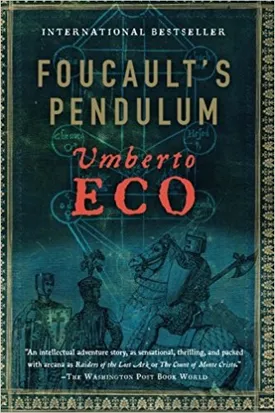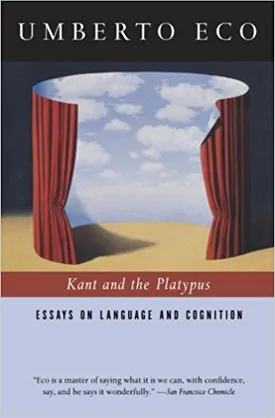Umberto Eco
Umberto Eco was one of the most influential authors of the late twentieth century, known both for his works of fiction that blended historical and philosophical themes, as well as for his academic writing, which often turned traditional thought on its head. Eco was born on January 5, 1932, in the small town of Alessandria, in the Piedmont region of northern Italy. He received a degree in philosophy from the University of Turin in 1954 and went on to study at the University of Geneva. Eco later achieved a doctorate in philosophy, specializing in aesthetics. From the late 1950s until his death in 2016, Eco wrote extensively on literature, semiotics, theology, philosophy, and political analysis, as well as publishing numerous works of fiction.
Beginning his career in academia as a lecturer at the University of Turin in 1956, Umberto Eco taught at a number of universities in Italy, France and the United Kingdom. He then turned his attention to writing, achieving enduring international success with works such as his 1980 novel, The Name of the Rose, which was subsequently adapted into a 1986 feature film. His 1976 book, A Theory of Semiotics, is considered one of the most important texts ever written on the subject and is credited with heavily influencing broader understanding of the field.
Throughout his career, Umberto Eco sought to apply a semiotic approach to literature, examining the science of symbols and interpreting their meanings. In his 1965 book, The Open Work, Umberto Eco put forth the idea that literature should be open to multiple interpretations and should offer the reader opportunities to make their own deductions. This approach influenced numerous later authors – many of whom had been mentored by Eco – in the de-constructionist school of literature.
In addition to his academic works, Umberto Eco is best known for his many books of fiction. These works could be broadly divided into two categories: the ‘historical-occult’, represented by The Name of the Rose, and the ‘modernist-literary’, represented by Foucault’s Pendulum (1988). Both works present complex philosophies that intertwine history, philosophy, literature and culture, making them difficult to define in any single genre.
The Name of the Rose is set in a Benedictine abbey in the fourteenth century, where a series of mysterious deaths trouble the monks and enlist the help of a Franciscan friar, William of Baskerville. The book’s subtitle, ‘a novel about the Middle Ages’, reveals how Eco draws on historical detail to craft an entertaining story that stimulates thought, as William and his novice investigate the abbey’s mysteries.
Foucault’s Pendulum is a thrilling novel of conspiracy set in modern-day Milan and Paris. Three publishers become ensnared in a web of conspiracies, fabricate a plan to defeat a secret society that controls the fate of the world, and ultimately discover a truth far more astonishing than anything they could have imagined.
In his final years, Umberto Eco wrote On Ugliness (2007), a celebration of the beauty of ugliness, proclaiming the desirability of what is generally deemed socially unacceptable. Eco wrote, ‘We must understand that ugly things have always been present among us and that ugliness can represent an unpredictable source of pleasure.’ Eco’s work in academia, fiction and non-fiction, served to educate and entertain, while always seeking to confront and challenge conventions.


